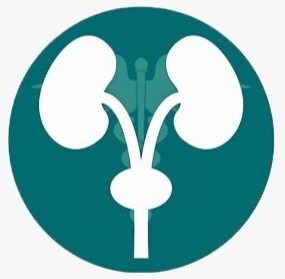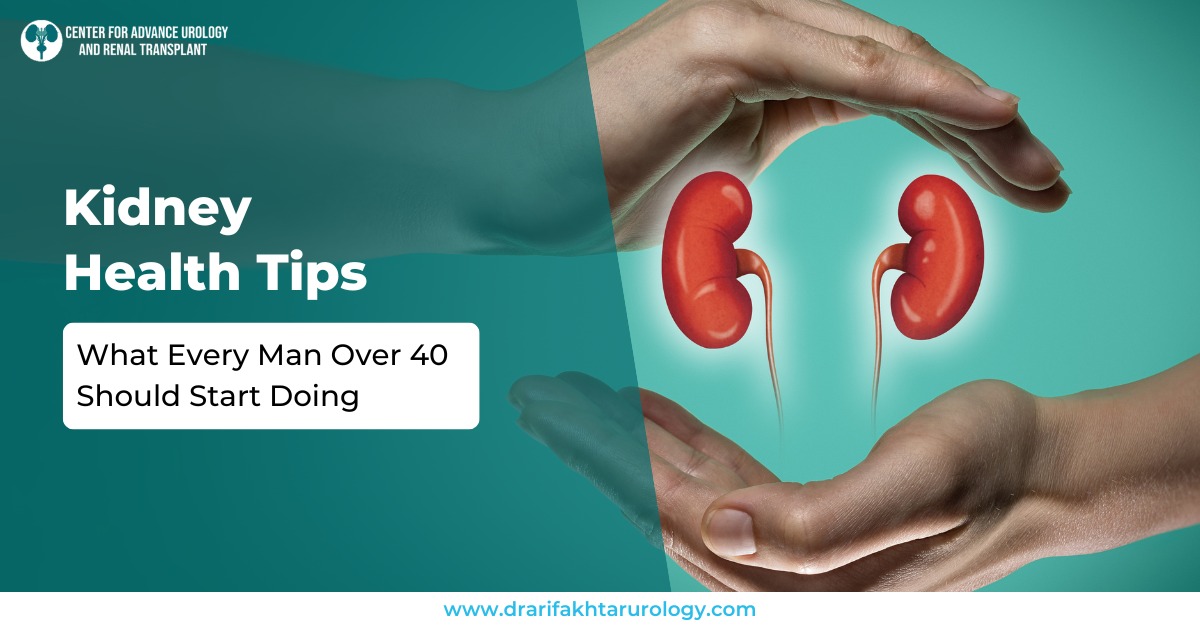Introduction
As men cross the age of 40, their risk for chronic health issues—including kidney disease—rises noticeably. The kidneys may be small organs, but they play a massive role in filtering waste, balancing fluids, and maintaining blood pressure. Over time, certain habits, health conditions, and medications can strain these vital organs. Fortunately, many kidney problems are preventable with the right choices. This blog outlines key steps every man over 40 should take to maintain kidney health.
Why kidney health becomes critical after 40
Ageing affects every system in the body, including the kidneys. After 40, kidney function naturally begins to decline, even in healthy individuals. Men are also more likely to develop high blood pressure and diabetes, two leading causes of chronic kidney disease (CKD). Regular monitoring and proactive lifestyle changes can significantly reduce these risks.
Healthy lifestyle habits to protect your kidneys
Stay well-hydrated
Water supports kidney filtration and helps flush out toxins. Aim for 2 to 3 litres per day, unless advised otherwise by a healthcare professional, especially if you have heart conditions.
Eat a kidney-friendly diet
Focus on whole foods: fresh vegetables, fruits, whole grains, lean protein, and healthy fats. Cut back on processed foods, which are often high in sodium, sugar, and unhealthy fats. Too much salt increases blood pressure and strains the kidneys.
Control blood pressure and blood sugar
High blood pressure and uncontrolled diabetes silently damage the kidneys over time. Regular monitoring, appropriate medication, and a balanced lifestyle are essential for keeping these in check.
Maintain a healthy weight
Being overweight can lead to insulin resistance, hypertension, and other metabolic conditions that impair kidney function. Aim for a balanced diet and regular physical activity—at least 30 minutes most days of the week.
Minimise kidney stressors
Use medications cautiously
Long-term or excessive use of painkillers—especially NSAIDs like ibuprofen—can harm the kidneys. Always follow dosage instructions and consult your doctor before prolonged use of any medication.
Limit alcohol and quit smoking
Excessive alcohol dehydrates the body and disrupts blood pressure control, while smoking directly affects blood flow to the kidneys. Reducing or quitting these habits supports kidney and overall vascular health.
Avoid unnecessary supplements
Some over-the-counter supplements, especially those high in protein or containing creatine, can strain the kidneys. Always discuss supplements with your healthcare provider.
Get regular screenings and check-ups
Annual kidney function tests
Simple blood and urine tests can detect early signs of kidney decline. These include serum creatinine, eGFR (estimated glomerular filtration rate), and urine protein levels. Early detection helps slow disease progression.
Monitor for related conditions
Screenings for high blood pressure, blood sugar, cholesterol, and prostate health become more important after 40. Addressing these conditions promptly reduces the overall strain on the kidneys.
Family history matters
If you have a family history of kidney disease, high blood pressure, or diabetes, share this with your doctor. Genetic risk factors may warrant more frequent testing or preventive steps.
Conclusion
Turning 40 is a great time to reassess health priorities—and your kidneys deserve a top spot on the list. With consistent hydration, a balanced diet, regular exercise, and routine check-ups, you can keep your kidneys functioning well into older age. And if you have existing conditions like diabetes or high blood pressure, managing them effectively is key. Protecting your kidney health today pays off in overall wellbeing tomorrow.




